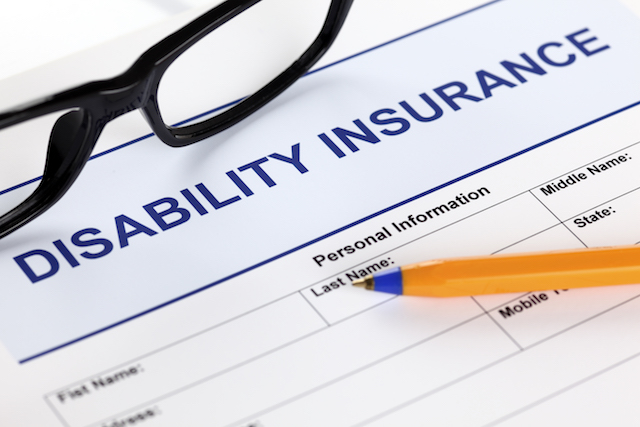Requirements for Disability Benefits in New Jersey
If you are a disabled New Jersey resident and your medical condition prevents you from being able to work, you may be an excellent candidate for monthly disability benefits. These benefits are administered by the Social Security Administration, or SSA, and are available in two varieties known as SSI (Supplemental Security Income) and SSDI (Social Security Disability Insurance). Some people even qualify to receive both at the same time, which is known as receiving concurrent benefits. However, before you can receive assistance, you must file a disability claim, which must then be approved by the SSA. While the SSA approves millions of Americans for benefits every year, even more people will be rejected than will be accepted into social security programs.
According to statistics, only about 43% of all New Jersey claimants are approved on their first try, while the average acceptance rate drops even lower during the first stage of the appeals process. In order to maximize your chances, it is critically important to have a good understanding of the SSA eligibility requirements for SSI and SSDI applicants. Wherever you are in the process, the experienced New Jersey social security benefits attorneys of Young, Marr & Associates can help review your materials, guide you through the system, and represent you if your claim is denied.
To set up a free and confidential legal consultation, call us today at (609) 755-3115 to talk with our New Jersey disability lawyers or (215) 701-6519 to speak with our Pennsylvania disability lawyers.
SSA Medical Requirements for Disability Claimants
In an effort to deter fraud and cut down on frivolous claims, the social security system imposes very strict and specific requirements for SSDI and SSI applicants seeking disability benefits. Some of these eligibility criteria are medical, while others relate to your finances and work history. The medical eligibility requirements are that you need to be severely disabled so that you cannot work or do a substantial gainful activity.
Disability
You must have a disability to be eligible for Social Security Disability Insurance or Supplemental Security Income. Your disability must be classified as severe, meaning it prohibits you from working and earning income. If your impairment is very mild or easy to control and does not interfere with your employment, you will not be eligible for consideration. Your disability must have either already lasted for 12 consecutive months, be expected to last for at least 12 consecutive months or be expected to result in death.
When evaluating disabilities, the SSA refers to a large and comprehensive document called the Listing of Impairments, which is nicknamed the “Blue Book.” As the name suggests, the Listing is essentially a catalog of common medical issues, which are categorized by body system. In order for you to be considered severely impaired, as noted above, your condition must either match or equal the severity standards the Listing supplies for your specific illness or injury. While all impairments must be considered severe, what makes diabetes severe is very different from what makes epilepsy or anemia severe. The purpose of the Listing is to establish condition-specific severity requirements. The Listing is relatively expansive, but obviously cannot cover every possible condition. If your condition is not included in the Listing, you may still be able to qualify if you can demonstrate that you are unable to work due to the effects of your medical issue. This is known as a medical-vocational allowance. Furthermore, if your condition is very rare or is an advanced terminal illness, you may be able to locate it under the Compassionate Allowances (CAL) listings.
Compassionate Allowances
Compassionate allowances are given for certain disabilities listed on the SSDI website. Applications with a compassionate allowance are generally fast-tracked through the Social Security Disability Insurance process. Compassionate allowances cover conditions like cancer, leukemia, and other rare or serious conditions. If you have a disability that qualifies for a compassionate allowance, you should discuss your situation with our lawyers so we can give your application the best chance for success.
SSDI Work History Requirements
Social Security Disability Insurance eligibility is also based on your work history. Unlike Supplemental Security Income, which does not take into account your work history, SSDI requires that applicants have worked for a certain period of time prior to being disabled in order to qualify. You need 40 “work credits” in order to be eligible for SSDI. Work credits are earned based on your income for the year. In 2023, one work credit is earned for every $1,640 you earn. You can earn up to four credits per year, so if you earn $6,560 in a year, you will have earned four credits for that year.
There is also something called a “recent work test” that you must pass to be eligible for SSDI. Essentially, you need to have been working for a certain length of time directly before you became disabled in order to qualify. For people younger than 24 years old, you must have earned six credits in the three years prior to becoming disabled. If you are between the ages of 24 and 31, you need to have been working for half the time between the ages of 21 and when your disability began. For example, if you became disabled at the age of 29, you would need to have been working for the four years prior (half of eight years from 21 to 29). If you are 31 or older, you need 20 credits in the past ten years.
SSA Income Limits for SSDI Claimants
Because SSDI is intended for disabled individuals with work history, it is differentiated from SSI primarily by financial considerations. The finance and employment-related eligibility requirements vary between the two programs. As explained previously, Social Security Disability Insurance eligibility is heavily dependent on an applicant’s work history. On the other hand, Supplemental Security Income eligibility is more focused on the financial need of applicants, regardless of their work history. We’ll cover income limits and other information regarding SSDI and SSA income requirements below.
For SSDI claimants: You should not be earning more than $1,470 per month in most circumstances. (This limit is raised to $2,460 per month for blind applicants). Also, SSDI applicants must have earned a certain total of work credits depending on their age and the age at which they became disabled. For example, a claimant born after 1929 who became disabled at age 44 would only need 22 credits, while a person who became disabled at age 60 would need 38 credits.
SSDI Financial Requirements for Prospective Applicants
Social Security Disability Insurance applicants must have limited income and resources. The SSA counts cash, property, life insurance policies, vehicles, bonds, land, and other items as resources. However, the income and resource limits for SSDI are significantly less strict than those for SSI. This is because the program is based on work history and not purely on financial status. The Social Security Disability Insurance website has a resource page displaying income eligibility requirements for applicants to the program.
As of 2023, for individuals who are not blind, the requirement is that you must have less than $1,417 in monthly wages. For individuals who are statutorily blind, the threshold is $2,460. However, other sources of income and resources are not always considered in Social Security Disability Insurance evaluations. Resources means any assets or things that you own. This includes physical things like gold or furniture as well as nontangible things like stock. This is different from SSI, which can disqualify applicants if they have too many assets other than income.
SSDI Disability Review Requirements
Unlike Supplemental Security Income, SSDI requires you to report fewer lifestyle changes to the Social Security Administration. However, some changes could result in you no longer being eligible for SSDI. Individuals who receive Social Security Disability Insurance are reviewed from time to time to see if they still qualify for the program. If there has been a change in your circumstances that you feel would negatively affect your eligibility, you should discuss the situation with our lawyers. We’ll go over some of the important information you will need to report to maintain SSDI benefits below.
Information Collection
Social Security Disability Insurance will make inquiries about your medical condition and whether it has improved, deteriorated, or remained the same. If any new health problems have arisen in your life since receiving SSDI benefits, they will also be factored into review at this time. If your condition has stayed the same or worsened, you will still likely be eligible for SSDI benefits. However, if your disability has improved enough that you can participate in substantial gainful activity, you may no longer be eligible for SSDI.
SSDI Continued Eligibility Determination
Certain life changes can make it so that you are no longer eligible for Social Security Disability Insurance.
First, if you can now work because of newly learned skills or “vocational training,” you may no longer qualify for SSDI. This also applies if a new medical treatment is able to remove your disability. Second, if an SSDI evaluator incorrectly comes to the conclusion that you qualify for SSDI benefits, your benefits can be stopped. Third, if you knowingly provided incorrect information on your SSDI application, you can be stripped of SSDI benefits. Finally, if your income surpasses the substantial gainful activity threshold, you cannot be eligible for SSDI.
If your condition has remained the same as it was on your application, your SSDI benefits will continue.
What You Can Do if Your SSDI Benefits are Stopped
If you had SSDI benefits and they were subsequently taken away after an evaluation, there are things you can do to dispute the finding that you no longer qualify for SSDI. Our lawyers can assist you with any of these steps in combatting the loss of Social Security Disability Insurance Benefits
There is an appeal process that applicants with disputed SSDI eligibility go through. First, your case can be independently reviewed by evaluators unattached to the decision to cancel your benefits. Second, you can have a hearing with an administrative judge to dispute the finding that you are no longer eligible for SSDI. Third, you can ask an appeals court to review the decision. Finally, you are able to sue in Federal court to dispute a finding that you are no longer able to receive Social Security Disability Insurance.
Call Our New Jersey Disability Benefits Lawyers Today
To set up a totally free and confidential legal consultation, call (609) 755-3115 with our New Jersey disability attorneys or (215) 701-6519 in Pennsylvania, or contact our law offices online today.





























